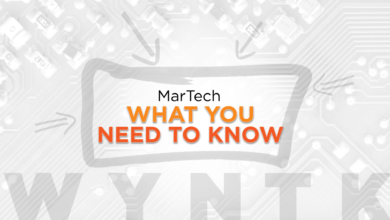AI-Powered Marketing: How to Leverage Artificial Intelligence for Success

Introduction
In today’s digital age, marketing has evolved significantly with the integration of artificial intelligence (AI) technologies. AI-powered marketing has revolutionized the way businesses reach and engage with their target audience, making it possible to analyze vast amounts of data and automate various marketing processes with unprecedented accuracy and efficiency.
By harnessing the power of AI, marketers can gain valuable insights, optimize campaigns, personalize customer experiences, and ultimately drive better results. In this blog post, we will explore how businesses can leverage AI for marketing success, discussing the benefits, strategies, and best practices for implementing AI-powered marketing campaigns.
The Benefits of AI-Powered Marketing
There are numerous benefits to incorporating AI into your marketing strategy. Some of the key advantages include:
1. Data-driven Insights
AI algorithms can analyze vast amounts of data in real-time to uncover valuable insights about customer behavior, preferences, and trends. This allows marketers to make informed decisions and optimize their campaigns for better results.
2. Personalization
AI-powered tools can segment audiences based on various criteria and deliver personalized content to each individual, increasing engagement and conversion rates. Personalization is key to building stronger relationships with customers and driving loyalty.
3. Automation
AI can automate various marketing tasks, such as email campaigns, social media scheduling, and ad targeting, saving time and resources while improving campaign performance. By automating repetitive tasks, marketers can focus on more strategic initiatives.
4. Predictive Analytics
AI can forecast future trends and outcomes based on historical data, enabling marketers to anticipate customer needs and preferences. Predictive analytics can help businesses stay ahead of the competition and adapt to changing market conditions.
Strategies for Implementing AI-Powered Marketing
When implementing AI-powered marketing strategies, it’s essential to have a clear plan and set objectives. Here are some key strategies to consider:
1. Define Your Goals
Before integrating AI into your marketing efforts, identify your objectives and key performance indicators (KPIs). Whether you want to increase sales, improve brand awareness, or enhance customer engagement, having clear goals will help you measure the success of your AI-powered campaigns.
2. Invest in the Right Tools
There are numerous AI-powered marketing tools available on the market, ranging from analytics platforms to chatbots and personalization engines. It’s essential to invest in tools that align with your goals and budget, ensuring you get the most value from your AI investments.
3. Use AI for Predictive Lead Scoring
AI can analyze customer data to predict which leads are most likely to convert, enabling marketers to prioritize their efforts and focus on high-value prospects. By leveraging predictive lead scoring, businesses can improve their sales pipeline and drive revenue growth.
4. Implement Chatbots for Customer Support
Chatbots powered by AI can provide instant responses to customer inquiries, improving the overall customer experience and reducing response times. By implementing chatbots on your website or social media channels, you can enhance customer satisfaction and drive conversions.
Best Practices for AI-Powered Marketing
To maximize the effectiveness of your AI-powered marketing campaigns, consider the following best practices:
1. Continuously Monitor and Optimize
AI algorithms require constant monitoring and optimization to ensure they are performing at their best. Regularly review your campaign metrics, test different strategies, and make adjustments based on the data to improve results over time.
2. Maintain Data Quality
AI relies on high-quality data to deliver accurate insights and predictions. Ensure your data is clean, up-to-date, and relevant to avoid biases and inaccuracies in your AI models. Regularly audit your data sources and processes to maintain data quality.
3. Stay Compliant with Regulations
When using AI for marketing, it’s essential to comply with data privacy regulations, such as the General Data Protection Regulation (GDPR) and the California Consumer Privacy Act (CCPA). Ensure you have the necessary consent to collect and use customer data and adhere to best practices for data security.
4. Embrace Collaboration
AI is most effective when combined with human intelligence and creativity. Encourage collaboration between your marketing team and AI tools to leverage the strengths of both, driving innovation and enhancing campaign performance.
FAQs
Q: How can AI help improve customer segmentation?
A: AI can analyze customer data to identify patterns and behaviors, allowing marketers to segment their audience more effectively. By understanding the unique characteristics of different customer segments, businesses can tailor their messaging and offers to meet specific needs and preferences.
Q: What are the risks of using AI in marketing?
A: While AI offers many benefits for marketers, there are also potential risks to consider, such as data privacy concerns, algorithm biases, and over-reliance on automation. It’s essential to address these risks proactively and implement safeguards to protect customer data and ensure ethical AI use.
Q: How can small businesses leverage AI for marketing?
A: Small businesses can benefit from AI-powered marketing by using affordable and user-friendly tools that automate tasks, personalize customer interactions, and optimize campaigns. By starting with simple AI solutions and gradually scaling their efforts, small businesses can compete effectively with larger companies in the digital marketplace.
By following these strategies and best practices, businesses can harness the power of AI to drive marketing success and achieve their goals in today’s competitive landscape. Embracing AI-powered marketing can unlock new opportunities for growth, innovation, and customer engagement, setting businesses apart from the competition and driving long-term success.




